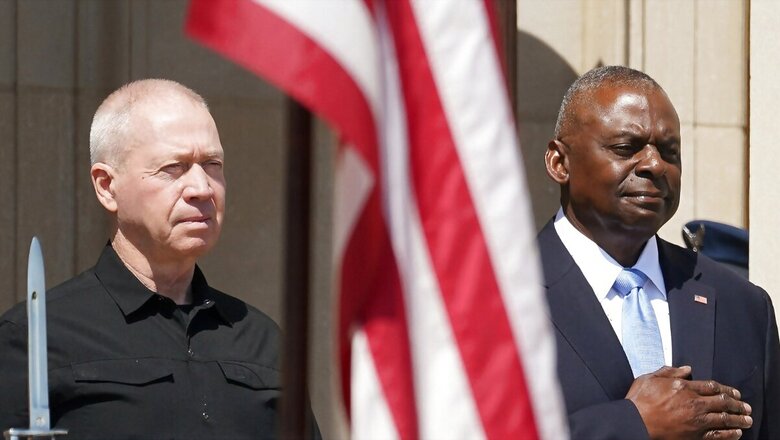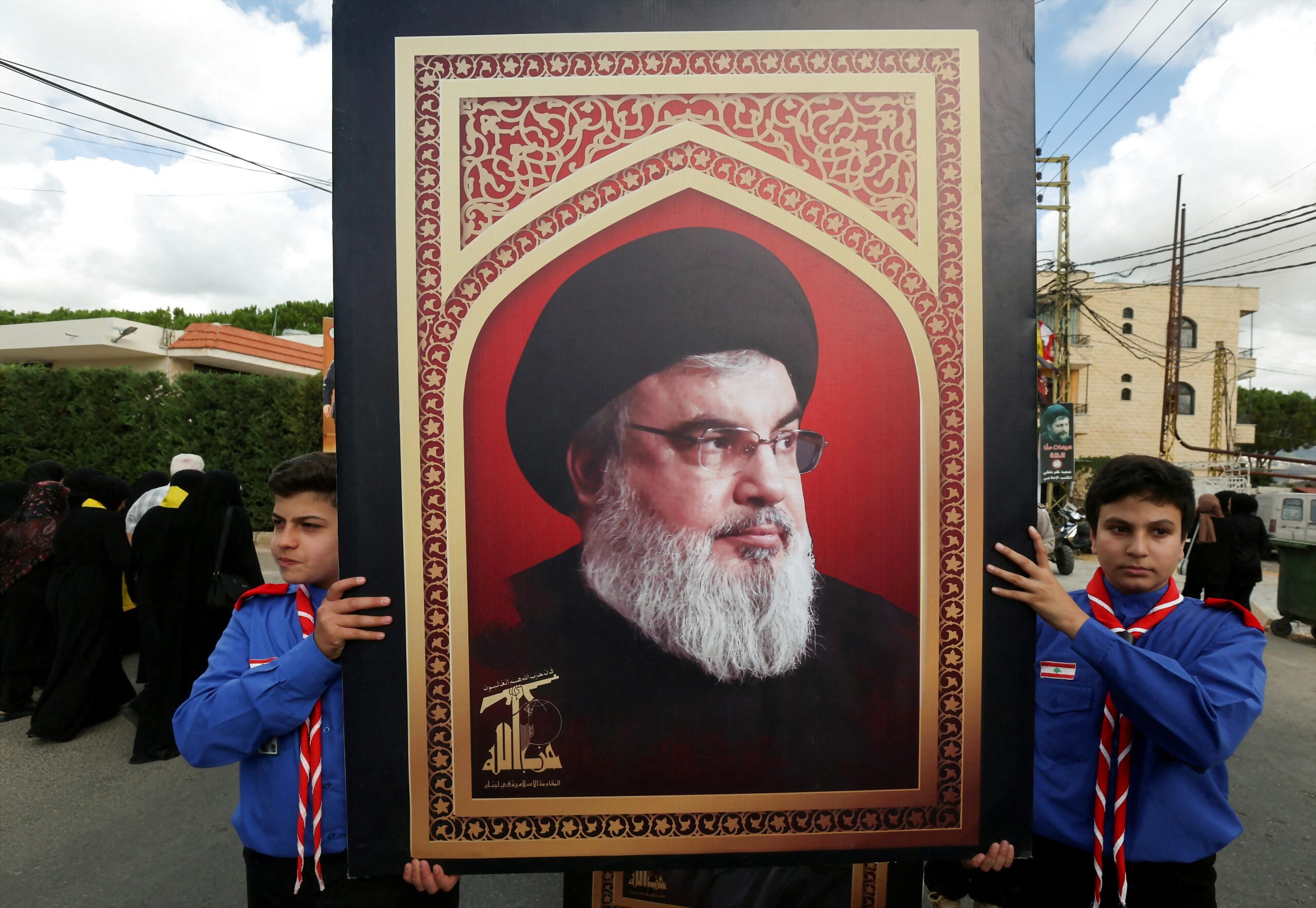
views
US Secretary of Defense Lloyd Austin was reportedly furious with his Israeli counterpart Yoav Gallant after not being informed about the Israeli military’s plan to target Hezbollah chief Hassan Nasrallah, according to The Jerusalem Post.
Almost a year into the Gaza conflict, Gallant had kept Austin updated on major military actions, showing the low level of trust between US President Joe Biden and Prime Minister Benjamin Netanyahu. On Friday, Austin declined to offer any assessment of the strike, amid speculation about the fate of the Lebanese militant group’s head before he was officially pronounced dead.
‘No advance warning’
While speaking to reporters, Austin said he would be speaking with Gallant again “soon” for an update. “We had no advance warning. My call with Minister Gallant took place while the operation was actually already underway,” he said as he landed at Joint Base Andrews outside Washington after a trip to London. This development has raised concerns over the fragile communication between Tel Aviv and its strongest ally Washington as the former faces the prospect of a multiple-front war.

The situation is exasperated by changes in Israel’s foreign ministry, with Netanyahu not granting much authority to either Foreign Minister Eli Cohen or his successor, Israel Katz. The Israeli newspaper said the dynamic between Gallant and Austin has gained additional significance as the two leaders have met frequently during the crisis, speaking more than 125 times since the Gaza conflict began.
US-Israel Ties
Despite their close working relationship, Austin’s frustration stemmed from a belief that the late notice was a tactic to avoid potential pushback from the US, particularly given America’s goal of preventing a wider regional war. The Biden administration has repeatedly urged Israel to exercise restraint in its military operations against Hezbollah to avoid escalating tensions further.
The killing of Nasrallah could have far-reaching implications for the Middle East as Israel shifts its attention from its nearly year-old war with Iran-aligned Hamas in Gaza to operations against Hezbollah amid fears that strikes in Lebanon could trigger a wider war that draws in Iran.
A White House official told Reuters that it was unclear how the situation will evolve. “We’re obviously working our way through it this morning. And, you know, it’s not clear exactly where things go from right now,” said the official. The Biden administration has struggled over the past year to balance Israel’s right to self-defense against the need to contain civilian casualties and prevent a spiral into a broader Middle East conflict.
‘Nasrallah’s death doesn’t change anything’
Defence experts said Friday’s strike would further complicate that effort. “The killing of Hassan Nasrallah, Hezbollah’s leader, by an Israeli airstrike in Lebanon will not fundamentally alter the course of this conflict,” said Rosemary Kelanic, director of the Middle East Program at Defense Priorities, a think tank.
“Nasrallah’s death doesn’t change anything for the United States either, except that it further complicates American efforts to negotiate a ceasefire between Israel and Hezbollah to prevent more bloodshed.” The timing of the strike, coming while Israeli leader Benjamin Netanyahu was visiting New York to speak at the UN General Assembly, could create additional friction in the US-Israel relationship.
(With agency inputs)
















Comments
0 comment